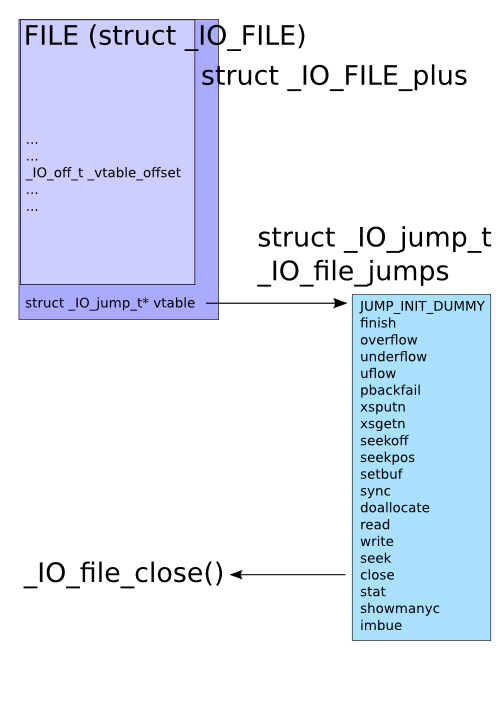Kees Cook: -fstack-protector-strong
 There will be a new option in gcc 4.9 named
There will be a new option in gcc 4.9 named -fstack-protector-strong , which offers an improved version of -fstack-protector without going all the way to -fstack-protector-all . The stack protector feature itself adds a known canary to the stack during function preamble, and checks it when the function returns. If it changed, there was a stack overflow, and the program aborts. This is fine, but figuring out when to include it is the reason behind the various options.
Since traditionally stack overflows happen with string-based manipulations, the default (-fstack-protector), only includes the canary code when a function defines an 8 (--param=ssp-buffer-size=N, N=8 by default) or more byte local character array. This means just a few functions get the checking, but they re probably the most likely to need it, so it s an okay balance. Various distributions ended up lowering their default --param=ssp-buffer-size option down to 4, since there were still cases of functions that should have been protected but the conservative gcc upstream default of 8 wasn t covering them.
However, even with the increased function coverage, there are rare cases when a stack overflow happens on other kinds of stack variables. To handle this more paranoid concern, -fstack-protector-all was defined to add the canary to all functions. This results in substantial use of stack space for saving the canary on deep stack users, and measurable (though surprisingly still relatively low) performance hit due to all the saving/checking. For a long time, Chrome OS used this, since we re paranoid. :)
In the interest of gaining back some of the lost performance and not hitting our Chrome OS build images with such a giant stack-protector hammer, Han Shen from the Chrome OS compiler team created the new option -fstack-protector-strong, which enables the canary in many more conditions:
- local variable s address used as part of the right hand side of an assignment or function argument
- local variable is an array (or union containing an array), regardless of array type or length
- uses register local variables
-fstack-protector-all for about 10 months now.
As a quick demonstration of the options, you can see this example program under various conditions. It tries to show off an example of shoving serialized data into a non-character variable, like might happen in some network address manipulations or streaming data parsing. Since I m using memcpy here for clarity, the builds will need to turn off FORTIFY_SOURCE, which would also notice the overflow.
#include <stdio.h>
#include <stdlib.h>
#include <string.h>
struct no_chars
unsigned int len;
unsigned int data;
;
int main(int argc, char * argv[])
struct no_chars info = ;
if (argc < 3)
fprintf(stderr, "Usage: %s LENGTH DATA...\n", argv[0]);
return 1;
info.len = atoi(argv[1]);
memcpy(&info.data, argv[2], info.len);
return 0;
Built with everything disabled, this faults trying to return to an invalid VMA:
$ gcc -Wall -O2 -U_FORTIFY_SOURCE -fno-stack-protector /tmp/boom.c -o /tmp/boom $ /tmp/boom 64 AAAAAAAAAAAAAAAAAAAAAAAAAAAAAAAAAAAAAAAAAAAAAAAA Segmentation fault (core dumped)Built with FORTIFY_SOURCE enabled, we see the expected catch of the overflow in
memcpy:
$ gcc -Wall -O2 -D_FORTIFY_SOURCE=2 -fno-stack-protector /tmp/boom.c -o /tmp/boom $ /tmp/boom 64 AAAAAAAAAAAAAAAAAAAAAAAAAAAAAAAAAAAAAAAAAAAAAAAA *** buffer overflow detected ***: /tmp/boom terminated ...So, we ll leave FORTIFY_SOURCE disabled for our comparisons. With pre-4.9 gcc, we can see that
-fstack-protector does not get triggered to protect this function:
$ gcc -Wall -O2 -U_FORTIFY_SOURCE -fstack-protector /tmp/boom.c -o /tmp/boom $ /tmp/boom 64 AAAAAAAAAAAAAAAAAAAAAAAAAAAAAAAAAAAAAAAAAAAAAAAA Segmentation fault (core dumped)However, using
-fstack-protector-all does trigger the protection, as expected:
$ gcc -Wall -O2 -U_FORTIFY_SOURCE -fstack-protector-all /tmp/boom.c -o /tmp/boom $ /tmp/boom 64 AAAAAAAAAAAAAAAAAAAAAAAAAAAAAAAAAAAAAAAAAAAAAAAA *** stack smashing detected ***: /tmp/boom terminated Aborted (core dumped)And finally, using the gcc snapshot of 4.9, here is
-fstack-protector-strong doing its job:
$ /usr/lib/gcc-snapshot/bin/gcc -Wall -O2 -U_FORTIFY_SOURCE -fstack-protector-strong /tmp/boom.c -o /tmp/boom $ /tmp/boom 64 AAAAAAAAAAAAAAAAAAAAAAAAAAAAAAAAAAAAAAAAAAAAAAAA *** stack smashing detected ***: /tmp/boom terminated Aborted (core dumped)For Linux 3.14, I ve added support for
-fstack-protector-strong via the new CONFIG_CC_STACKPROTECTOR_STRONG option. The old CONFIG_CC_STACKPROTECTOR will be available as CONFIG_CC_STACKPROTECTOR_REGULAR. When comparing the results on builds via size and objdump -d analysis, here s what I found with gcc 4.9:
A normal x86_64 defconfig build, without stack protector had a kernel text size of 11430641 bytes with 36110 function bodies. Adding CONFIG_CC_STACKPROTECTOR_REGULAR increased the kernel text size to 11468490 (a +0.33% change), with 1015 of 36110 functions stack-protected (2.81%). Using CONFIG_CC_STACKPROTECTOR_STRONG increased the kernel text size to 11692790 (+2.24%), with 7401 of 36110 functions stack-protected (20.5%). And 20% is a far-cry from 100% if support for -fstack-protector-all was added back to the kernel.
The next bit of work will be figuring out the best way to detect the version of gcc in use when doing Debian package builds, and using -fstack-protector-strong instead of -fstack-protector. For Ubuntu, it s much simpler because it ll just be the compiler default.
2014, Kees Cook. This work is licensed under a Creative Commons Attribution-ShareAlike 3.0 License.
 In theory, reducing the sensitivity will fix this
In theory, reducing the sensitivity will fix this

 Last year I shared my
Last year I shared my  Dpkg and Multiarch
I had some hope to have a multiarch-enabled dpkg in sid for Christmas as Guillem told me that it was realistic. Alas Guillem got sick. We re in January and we re still not there.
While some of Guillem s commits in December were related to multi-arch, the size of his
Dpkg and Multiarch
I had some hope to have a multiarch-enabled dpkg in sid for Christmas as Guillem told me that it was realistic. Alas Guillem got sick. We re in January and we re still not there.
While some of Guillem s commits in December were related to multi-arch, the size of his  In the face of
In the face of  This weekend, we held a combined Debian Bug Squashing Party and Ubuntu Local
Jam in Portland, OR. A big thank you to PuppetLabs for hosting!
Thanks to a brilliant insight from Kees Cook, we were able to give everyone
access to their own pre-configured build environment as soon as they walked
in the door by deploying schroot/sbuild instances in "the cloud" (in this
case, Amazon EC2). Small blips with the mirrors notwithstanding, this worked
out pretty well, and let people start to get their hands dirty as soon as
they walked in the door instead of spending a lot of time up front doing the
boring work of setting up a build environment. This was a big win for people
who had never done a package build before, and I highly recommend it for
future BSPs. You can read about the build environment setup in the
This weekend, we held a combined Debian Bug Squashing Party and Ubuntu Local
Jam in Portland, OR. A big thank you to PuppetLabs for hosting!
Thanks to a brilliant insight from Kees Cook, we were able to give everyone
access to their own pre-configured build environment as soon as they walked
in the door by deploying schroot/sbuild instances in "the cloud" (in this
case, Amazon EC2). Small blips with the mirrors notwithstanding, this worked
out pretty well, and let people start to get their hands dirty as soon as
they walked in the door instead of spending a lot of time up front doing the
boring work of setting up a build environment. This was a big win for people
who had never done a package build before, and I highly recommend it for
future BSPs. You can read about the build environment setup in the